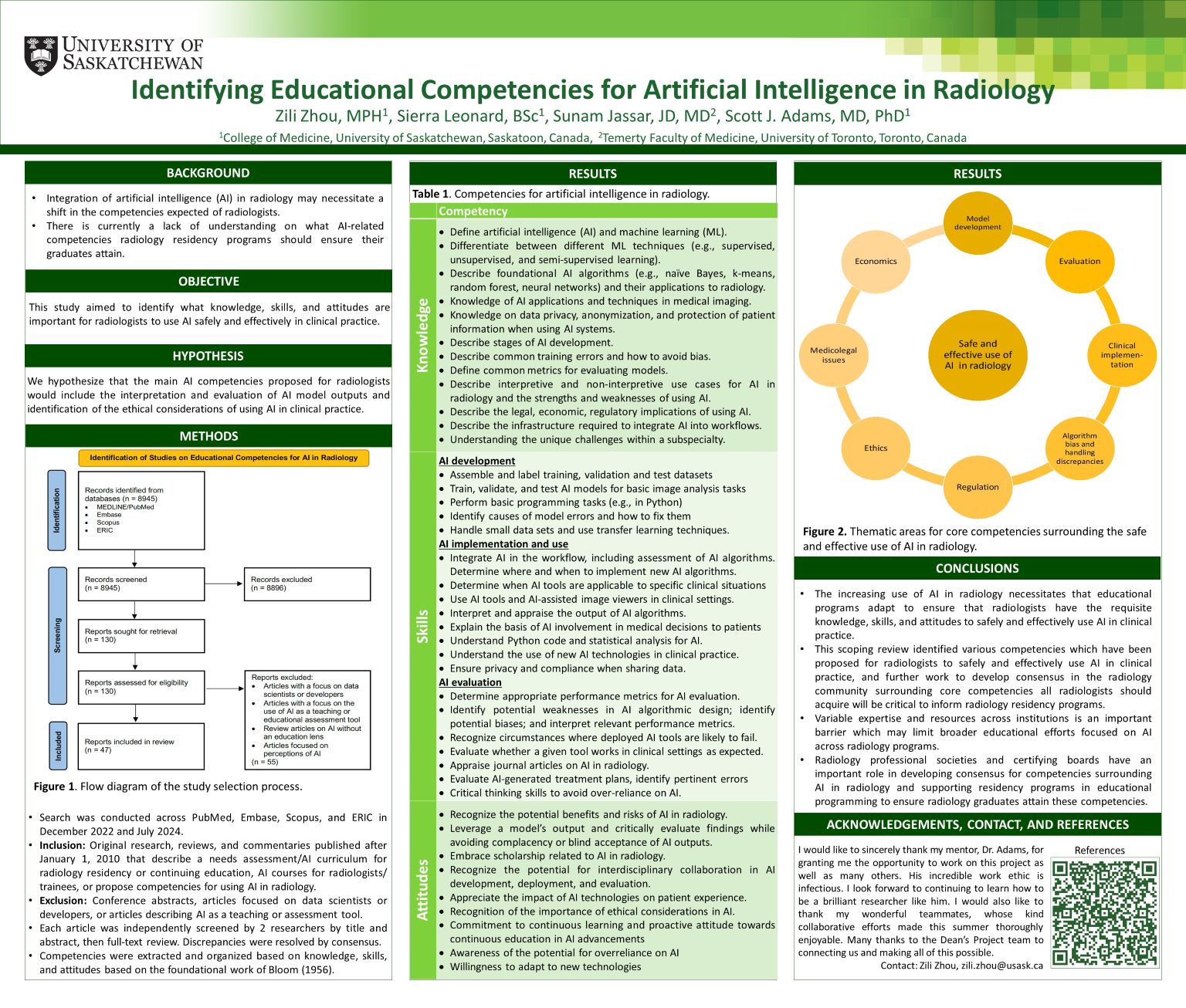
Identifying Educational Competencies for Artificial Intelligence in Radiology
Zili Zhou
Objective: The integration of artificial intelligence (AI) in radiology may necessitate a fundamental shift in the competencies expected of radiologists. There is currently a lack of understanding on what AI-related competencies radiology residency programs should incorporate. This study aimed to identify what knowledge, skills, and attitudes are important for radiologists to use AI safely and effectively in clinical practice.
Methods: Following Arksey and O’Malley’s methodology, a scoping review was conducted by searching PubMed, Embase, Scopus, and ERIC for articles published between 2010 and 2024. Two reviewers independently screened articles based on title and abstract, and full text review. Data was extracted using a standardized form to identify the knowledge, skills, and attitudes that may be important for the safe and effective use of AI.
Results: Of 8,945 articles screened, 47 articles were included. Core competencies were related to AI model development, evaluation, clinical implementation, algorithm bias and handling discrepancies, regulation, ethics, medicolegal issues, and economics of AI.
Conclusion: Current AI educational programming in radiology demonstrates substantial heterogeneity. Further research is needed to develop consensus on the core AI-related competencies for radiologists, to support integration of AI training and assessment into radiology residency programs.
